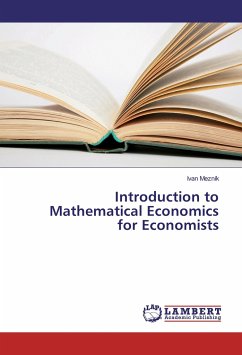Institutional economics is defined as a branch of economics that focuses on the role of institutions.Economic institutions also defined as formal and informal rules of economic game. Institutions are rules that dictate the costs and benefits of action, thus shaping what we do. Institutions is also defined as the rules of the game (North 1994), rules that provide a framework of incentives that shape economic, political, and social organization. Institutions are composed of formal rules (eg. laws and constitutions), informal constraints (conventions, codes of conduct, and norms of behavior), and their enforcement. Formal rules are defined as rules that are formally written down and enforced by the state. Informal rules are rules that are unwritten and informally sanctioned (norms and conventions).
Bitte wählen Sie Ihr Anliegen aus.
Rechnungen
Retourenschein anfordern
Bestellstatus
Storno








